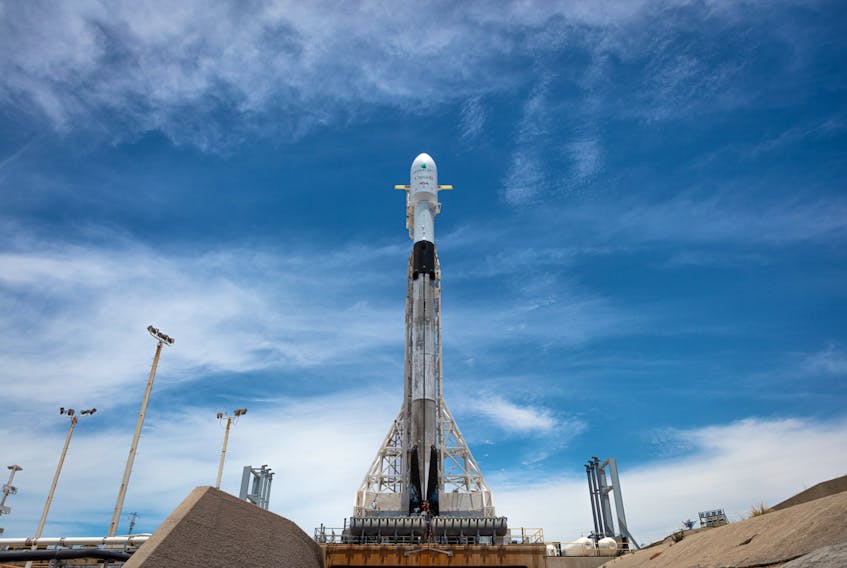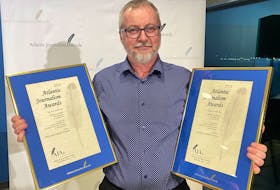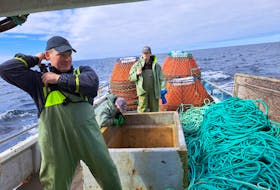ST. JOHN'S, N.L. — St. John’s-based tech company C-CORE is one of only eight companies to be awarded competitive Canadian Space Agency (CSA) contracts announced this week.
The contract firmly places C-CORE amid giants in the Earth-observation sector of the space industry, with other contracts being awarded to companies such as the German behemoth Airbus, and British Columbia-based MDA Systems.
“C-CORE had the right mix of experience and expertise, and proposed a strong methodology. And we felt we wanted to get them on board,” said Éric Dubuc, senior engineer of project management at the CSA.
The $350,000 contracts all come with the same scope of work: to develop concepts for the future of Earth observation from space. By next spring, some or all of those concepts could potentially be chosen to be further developed by the companies.
“This contract that we're working on will look at the entire breadth of Earth observation in Canada, from those pretty satellite images, to radar, to a whole bunch of other sensors that Canada can use to ensure safety, sovereignty, mapping — a whole myriad of different things that Canada is interested in,” said Desmond Power, vice-president of remote sensing at C-CORE.
“We are very fortunate as a Newfoundland and Labrador-based company to be able to influence that. (It’s a) very big deal to be able to do that.”
CSA currently has three Earth-observation satellites in space as part of the RADARSAT Constellation Mission. They generate roughly 250,000 images per year of Canada’s land and oceans. The data from those images help more than 90 national programs gather essential information, such as environmental data, information to help emergency teams during natural disasters or detection of ships.
C-CORE does this kind of work regularly, such as gathering information about ice — whether it’s pinpointing iceberg locations, or monitoring rivers such as the Exploits for ice jams — as well as mapping wetlands for Natural Resources Canada and the City of St. John’s.
“There's so much that can be done with satellites that impact ordinary people,” said Power.
He said C-CORE’s space-based Earth-observation capabilities have taken off in the last 20 years. In the last decade alone, he figures the company has done more than 100 projects related to Earth observation, and it currently has a $10-million project with Airbus and the European Space Agency.
Why this $350,000 contract is such a big deal for C-CORE, however, is simple: “We get to influence how space happens in Canada over the next decade,” said Power.
“I want our signature in space. I want a company from Newfoundland and Labrador with our fingerprints out in space, doing important work for the country.”
Power said C-CORE wants to shape the future of Earth observation in Canada so Newfoundland and Labrador can become a bigger contributor, and expand local expertise.
“That translates into more jobs for the province that's non-traditional to us. You look at Newfoundland and Labrador, and what are we known for? Oil and gas, fisheries, mining, resources, that kind of thing. Nobody really says ‘space’ when they think of Newfoundland and Labrador, but that's where I want to take us.
“I want to take us in a direction (that’s) non-traditional, not dependent on traditional resources, (with) highly qualified people, high-paying jobs — highly valuable jobs. That's what I want us to be known for.”
As for what the CSA expects from these contracts, Dubuc said they’re open-minded.
“Hopefully we’ll be surprised.”
However, he said there’s a demand for satellites to have improved capabilities to look over specific areas more frequently and with greater precision.
The first contract awarded to C-CORE by the CSA was in 2004.
Since 2003, the CSA has awarded contracts to nine companies or organizations in the province.









